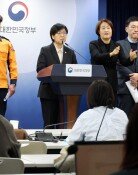[Editorial] Regulations in the Capital Area that Drive Jobs Abroad
[Editorial] Regulations in the Capital Area that Drive Jobs Abroad
Posted July. 26, 2005 03:08,
The current government emphasizes balanced regional development more than any former governments. It also explains that regulations on construction or expansion of factories in the Seoul metropolitan area are parts of the policy to reduce overcrowding in the Seoul metropolitan area and obtain balanced regional development. However, if side effects are greater than results, such regulations are just bad ones.
According to Korea Chamber of Commerce and Industry, 43 percent of the companies based in the Seoul metropolitan area have plans to build a new plant, expand, or relocate their plant, and out of these, 72 percent wish to do so in the metropolitan area. Nevertheless, they say that it is difficult to construct a factory with regulations such as limiting the total area of a factory, restricting new construction and expansion, as well as paying overcrowding costs. Therefore, most of the companies plan to wait until the regulations are loosened. Nineteen percent of the companies said they planned to build factories somewhere abroad in the coming three years. Regulations in the Seoul metropolitan area have failed to promote factories to move to the regions and have only made companies withhold from constructing or expanding new factories, or even causing them to relocate overseas.
In other words, the regulations in the Seoul metropolitan area only contract or delay domestic investment and lead to an outflow of domestic capital abroad. Instead of creating more jobs in Korea and increasing the potential for economic growth, the regulations only create more jobs for foreign countries with capital from Korean firms. The unemployment rate for youth was eight percent in 2003, but increased to 8.3 percent in 2004, and continues to increase, reaching 8.4 percent in the first half of this year. It is shameful that the budget to solve youth unemployment was 390 billion won in 2003, 564.3 billion won in 2004, and 788.5 billion won in 2004, which nearly doubled in two years, but to no avail.
With all types of regulations and a surge in land price due to reckless development, the costs of building a factory are soaring. This results in Korean companies leaving for overseas and foreign companies ignoring Korea. The Foreign Direct Investment (FDI) of domestic companies is rapidly increasing from $3.6 billion in 2002, $3.9 billion in 2003, and $5.8 billion in 2004. This year, the FDI until late May was $2.4 billion, or a 33 percent increase from last years $1.8 billion during the same period. In contrast, the new construction of factories in Korea has declined from 9,500 of 2001 to 6,900 last year.
Even as of now, the government should renounce fruitless policies with only a plausible slogan, and develop a policy that will result in creating new jobs and recovering economic growth potential. It is irresponsible to only call out for balance without being able to grow the national wealth.







